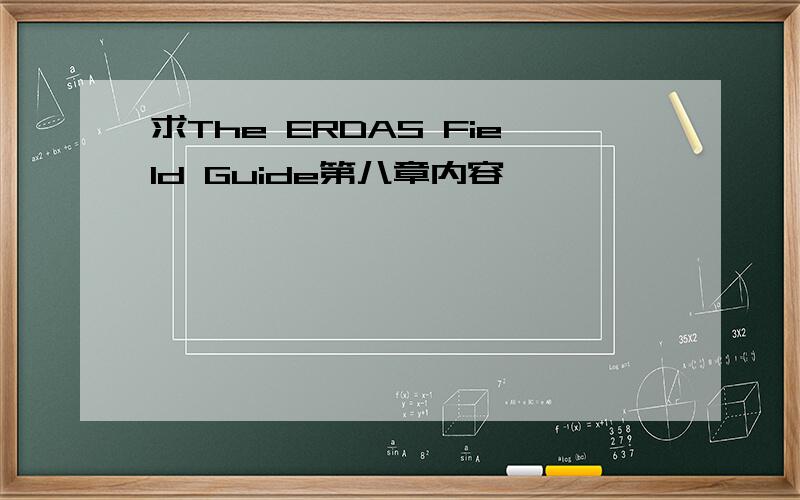求The ERDAS Field Guide第八章内容
来源:学生作业帮助网 编辑:作业帮 时间:2024/11/28 05:06:54

求The ERDAS Field Guide第八章内容
求The ERDAS Field Guide第八章内容
求The ERDAS Field Guide第八章内容
What is Photogrammetry?
Photogrammetry is the "art,science and technology of obtaining reliable information about physical objects and the environment through the process of recording,measuring and interpreting photographic images and patterns of electromagnetic radiant imagery and other phenomena".
With the development of digital photogrammetry,photogrammetric techniques are more closely integrated into remote sensing and GIS.
Types of Photographs and Images
The types of photographs and images that can be processed within IMAGINE OrthoBASE include aerial (or vertical),terrestrial,close range,and oblique.
Why use Photogrammetry?
Raw aerial photography and satellite imagery have large geometric distortion that is caused by various systematic and nonsystematic factors.